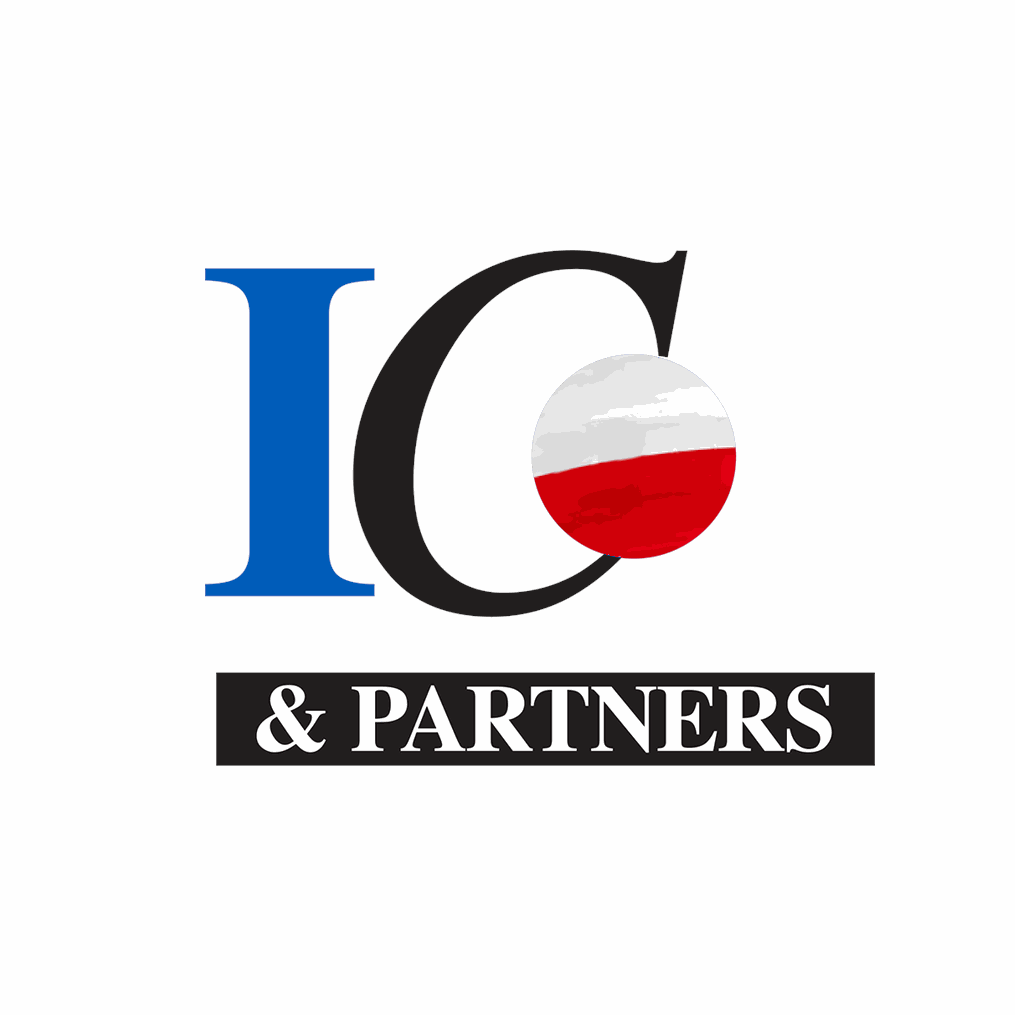IC&Partners Poland S.A. - Newsletter March 2022

Staff Leasing
IC&Partners Poland introduces a new service of staff leasing for its customers. The staffing contract allows companies to integrate new employees into the team without the need to hire them. This solution allows for better management of personnel policy in times of pandemics and uncertainties related to the situation in Europe. It guarantees flexibility and continuity of employment during peak periods of work, holidays, allows you to "detect" people whose permanent contracts are expiring, quickly replace an employee in case of turnover. The service can also be treated as a trial period for future employees. Another great advantage for the employer-user is the reduction of costs related to the research and management of employees, as well as the management process of their payroll.
Law Decree for Ukrainian Refugees
The Cabinet approved the special law on assistance to Ukrainian citizens in connection with the armed conflict on the territory of that country. Ukrainian citizens fleeing the war will be able to live and work in Poland without unnecessary formalities. Those who have crossed or will cross the Polish-Ukrainian border after February 24th this year will be able to stay in Poland legally for 18 months. The government also wants to allow Ukrainian refugees to start working without requiring a permit. Information sent electronically by the employer to the district labor office (within seven days of starting work) will suffice. In addition, the law will guarantee Ukrainians fleeing the war free access to medical care, family allowances, 500+ and good start or family assistance capital and others.
Authorizations to use the KSeF electronic invoice system
The electronic invoicing system (KSeF) allows the taxpayer to authenticate and authorize other people to view, issue and receive structured invoices. The authorization can be granted to a specific person or to an accounting office.
The system distinguishes the following types of authorizations for:
• nadawania, zmiany lub odbierania uprawnień do korzystania z Krajowego Systemu e-Faktur;
• wystawiania lub dostępu do faktur ustrukturyzowanych;
• wystawiania faktur, o których mowa w art. 106d ust. 1 ustawy o VAT (tj. faktur wystawianych w imieniu i na rzecz podatnika), będących fakturami ustrukturyzowanymi.)
There are two ways to grant, change or withdraw permissions:
Electronically - using the interface software (ksef.mf.gov.pl), the taxpayer, or other authorized person, indicates the scope of the data required in order to grant, modify or withdraw access rights.
In paper form - by submitting a communication on the granting or revocation of permits (ZAW-FA) for the use of the National Electronic Invoice System to the competent tax office manager. This option is available only for taxpayers and individuals who are not natural persons and do not have the ability to authenticate with a qualified electronic seal.
Change in default interest on tax debts
The decision of the Monetary Policy Council has established to raise the interest rates of the Polish National Bank by 0.5%, the amount of interest on arrears on tax arrears and social contributions has also been increased since February 9th, 2022 y. and currently the rate of such interest is 8.5%.
The free surety may constitute a "transaction" under the transfer pricing regulations.
Justifying the judgment of February 3, 2022. (Case No. II FSK 1475/19), the Supreme Administrative Court indicated that, since the notion of settlement was not defined in any provision of tax or civil law, it must be understood by making reference to a dictionary definition and the relevant jurisprudence and must be understood broadly. Consequently, the Supreme Administrative Court held that the notion of transaction also includes a legal transaction consisting in the granting of a free surety for a credit agreement.
SLIM VAT 3 pre-consultations
The website of the Ministry of Finance has published information on the start of the pre-consultations of SLIM VAT 3, that is the next package of simplifications in the VAT tax on goods and services. The proposed changes are divided into 7 areas, namely improving the financial liquidity of companies, VAT in international trade - less formalities, a wider range of VAT exemptions, fewer VAT friendly corrections and settlements, easier invoicing and fewer obligations, reduction of VAT penalties, consolidation and unification of binding information. The changes will also concern, among other things, the introduction of new rules for currency conversion in the case of corrective invoices (credit notes).
Minimum CIT tax from 2022
The CIT minimum income tax introduced in 2022 by the government's Polski Ład program raises many questions. The complicated formula makes it difficult to calculate its amount. Furthermore, experts point out the inaccuracies contained in the legislation and warn of the need for a quick amendment.
As a rule, the minimum tax applies to taxpayers who in the tax year:
• ponieśli stratę z działalności gospodarczej albo
• osiągnęli udział dochodów w przychodach z działalności gospodarczej na poziomie nie większym niż 1%.
Taxpayers are excluded from paying the minimum tax if:
• w roku podatkowym, w którym rozpoczęli działalność, oraz w kolejnych dwóch latach podatkowych;
• których wspólnikami są wyłącznie osoby fizyczne i którzy nie mają udziałów w innych podmiotach.
• płacący estoński CIT:
• którzy odnotowali roczny spadek przychodów o co najmniej 30%;
• będący przedsiębiorstwami finansowymi
• wchodzący w skład grupy co najmniej dwóch spółek, w której jedna spółka posiada przez cały rok podatkowy bezpośrednio 75-proc. udział w kapitale pozostałych spółek wchodzących w skład tej grupy. Celem jest tutaj wyłączenie z podatku minimalnego grupy podmiotów, jeśli jeden z nich ma rentowność poniżej 1 proc., ale jako grupa mają wyższą rentowność.
• podmioty osiągające większość swoich przychodów z działalności związanej z eksploatacją w transporcie międzynarodowym statków morskich lub powietrznych albo wydobywaniem kopalin, których ceny zależą od notowań na światowych rynkach.
The problem in calculating this tax may lie in determining the tax base. It will be necessary to apply two mathematical formulas indicated in the law and take into consideration not only the revenues, but also some costs (financing costs and purchase costs of intangible services from associated entities). In practice, this means that the new tax will then be partially paid on the expenses incurred by the company.
Companies will first have to determine if they are subject to the minimum tax, that is, if they have suffered a loss or if their income does not exceed 1% of revenues. In this calculation, the costs related to investments (costs of purchasing or improving fixed assets) must be excluded.
The tax base must be the sum of an amount corresponding to 4% of the value of the income (other than capital gains) and 10% of the overpayments to related entities of the group (financing costs and costs of acquiring certain rights or intangible services from associated entities).
The rate will be 10% and, in practice, it could be very severe and exceed the amount of the classic CIT calculated on income.
#Newsletter #Poland #Polonia #Polska #International #Internazionalizzazione
#Law #Tax #Consulting #International #Accounting #Payroll #Export
#ICPartners #ICPartnersPoland #SupportingBusinessWorldwide
Jeśli jesteś zainteresowany więcej informacji, proszę skontaktuj się z nami pod adresem: info@icpartnerspoland.pl 